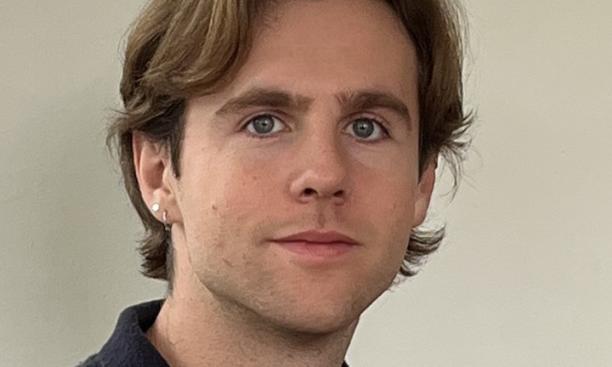
After graduating from high school in 2015, Peter Schmidt ’20 spent nine months volunteering in Tiquipaya, Bolivia, with Princeton’s Novogratz Bridge Year Program. Students in the program were encouraged not to bring their smartphones with them, so Schmidt had only a basic cell phone and no Internet access in the house where he lived.
“It was the most intellectually stimulating year of my life,” says Schmidt, who lives in New York. “I wonder if that has to do with the fact that I wasn’t looking at screens all year. Screens bring a great deal into our life, and they also take a great deal out of it.”
As the program director at the Strother School of Radical Attention, Schmidt is helping participants consider the tradeoffs of engaging in the attention economy, in which users of smartphones and similar devices have their attention diverted and extracted by social media companies for their own profit. And, he says, the project “is fundamentally connected to the liberal arts tradition, which is all about the cultivation of different kinds of attention.”
At Princeton, Schmidt majored in Spanish and Portuguese with a focus on cultural climate change studies. (He was also an intern for PAW as a junior and a senior.) In his final semester, he took a course from D. Graham Burnett ’93, a professor of the history of science who for many years has considered the problem of attention as a subject of academic study as well as in the context of viewing art and, more recently, in a broader social perspective.
Last year, Burnett introduced Schmidt to the Friends of Attention, a group that was creating the Attention Labs, which Schmidt describes as “experiential workshops that facilitate practices of shared attention to each other and the world around us.” Schmidt came to see a connection between the degradation of attention and climate change, a central concern of his since college.
Starting in September 2022, Schmidt and Burnett spent six months further developing the Attention Labs, which they held at several locations. In the process, Schmidt says, “We refined our sense of what we were trying to accomplish,” which was to create “spaces where people could understand how the world they live in is commodifying their attention, where they could connect to an experience of deep attention” and think about how to develop “agency over our own attention.” Burnett announced the launch of the Strother School in July.
The school continues to offer the Attention Labs, which are now three-hour gatherings of as many as 60 people led by facilitators who take attendees through a series of exercises. The school also offered two courses this fall taught by college professors that took a more academic approach to attention; more are planned for the spring.
The Strother School “is responding to 21st century problems,” Schmidt says. He and the other facilitators designed an exercise for the Attention Labs in which participants use their smartphones, which underscores the school’s desire that “people have an empowered relationship to that technology,” he says. “I’m probably just as addicted to my device as anyone. This work has led me to believe that we need ways of being together and taking in the world together that establish a common world.”
The Strother School, he says, is “my attempt to create the intellectual, creative, and engaged community that I’ve always dreamed of.”
